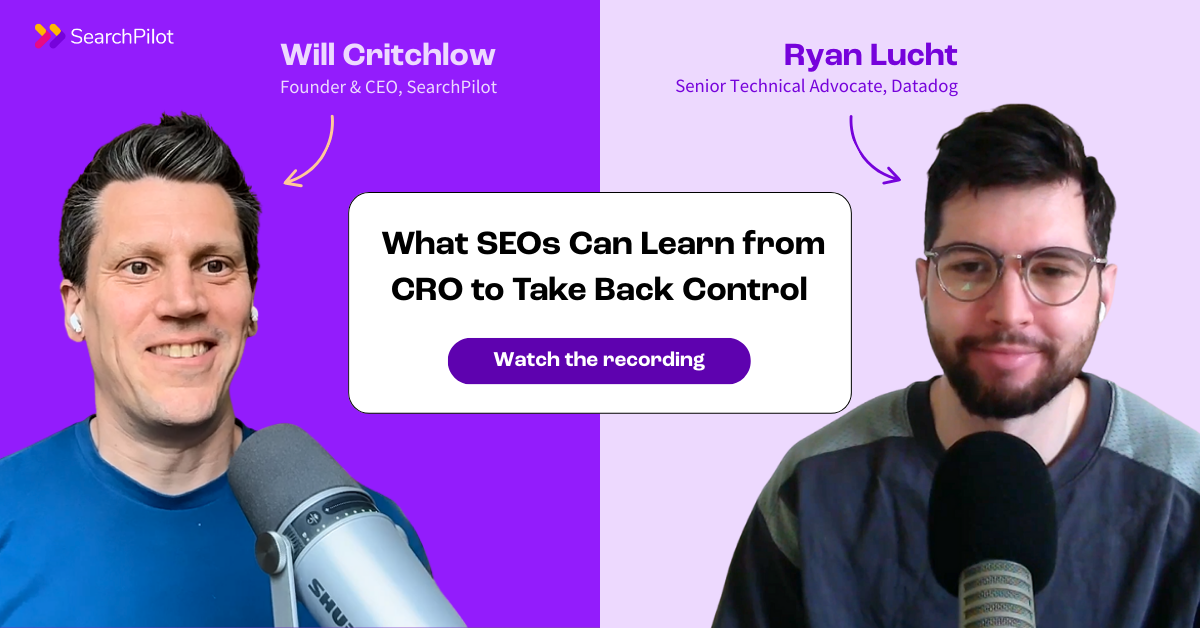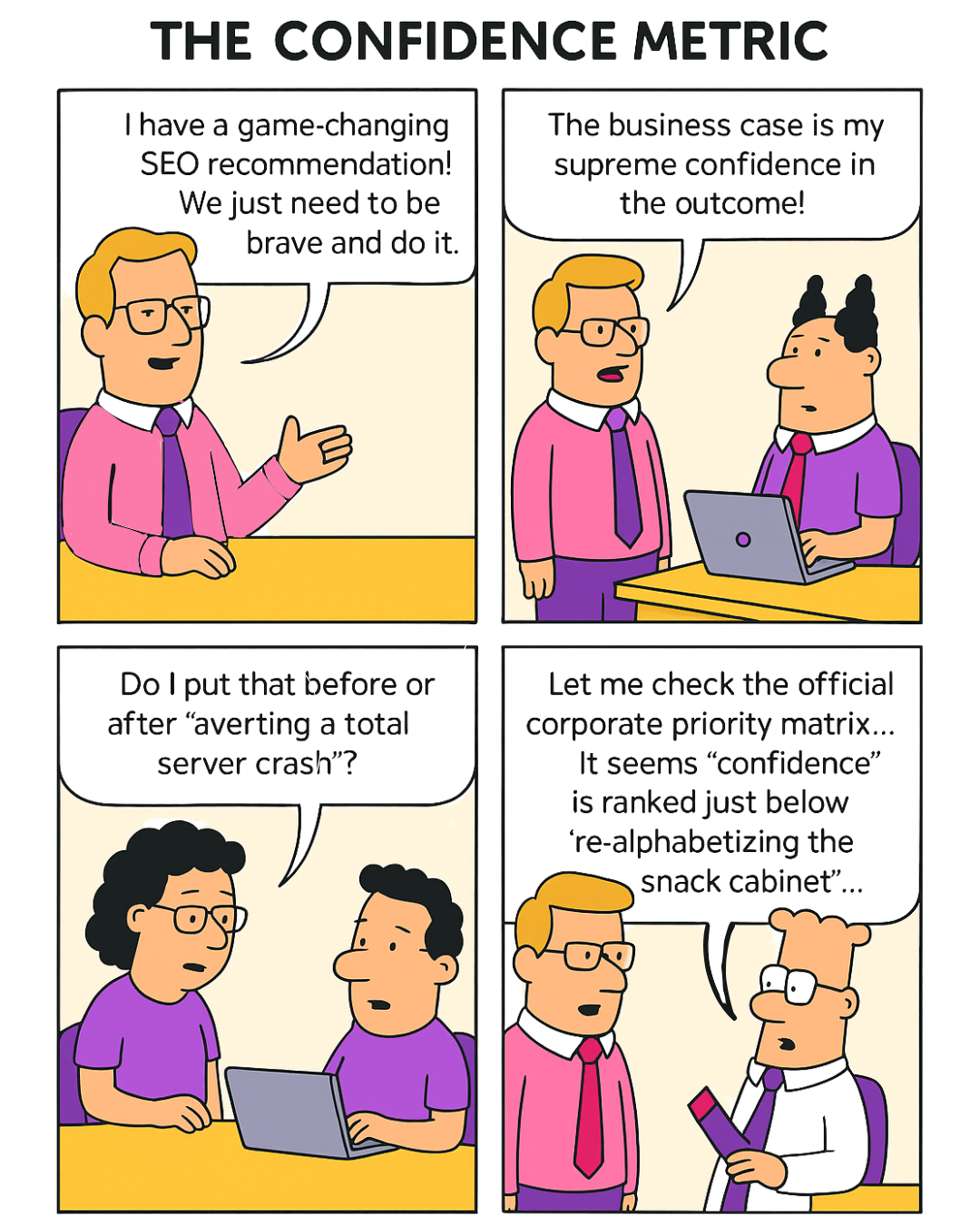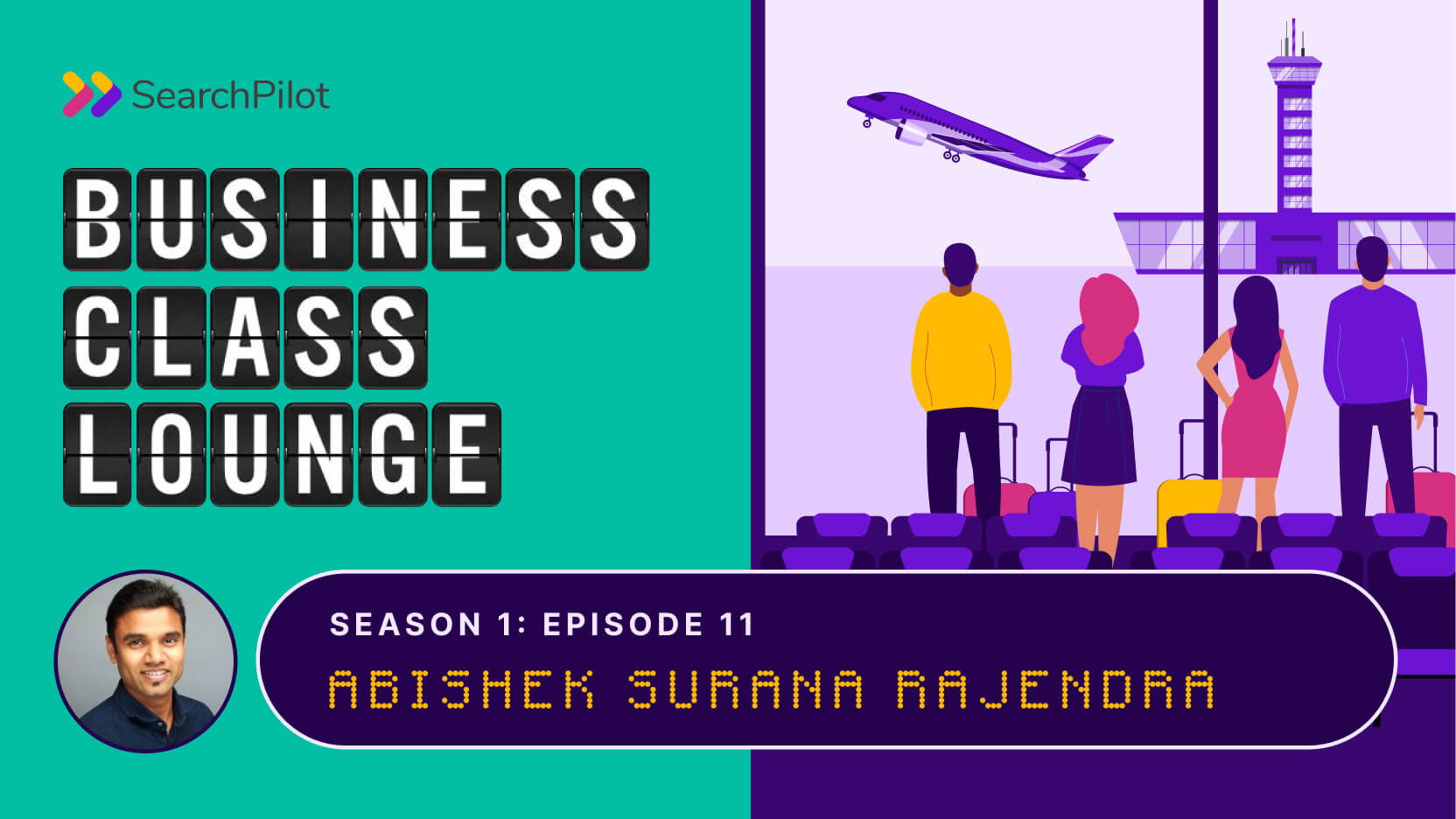For episode 10 of the Business Class Lounge podcast, I’d like to introduce you to Todd Friesen, otherwise known as “Oilman.” Todd and I first met at an SMX West conference back in 2006 (ish), and he’s a recognized pioneer in SEO marketing.
In this episode I talk to Todd about his leadership lessons, frameworks for goal setting, why messaging is vital for career growth, and what’s required to report on SEO projects with clarity. We also nerd out about AI Overviews.
Leadership learnings from Salesforce’s “digital hitman”
Todd joined Salesforce at a time when SEO was just “off in the corner of marketing” and he got the opportunity to develop a powerhouse team who worked across a variety of projects. During this time, he tells me about how he honed his servant leadership style.
What I love most about Oilman is his approach to leadership which combines a put-others-first mentality with genuine accountability for his own actions. “When something goes wrong, you absolutely have to take the bullet,” he says. “It won't unlock your team if they're afraid of getting in trouble.”
Doing this allows you to foster trust and create a culture of experimentation. In Todd’s own words, “you really need to move away from the ‘I’ and ‘them’ concept and get into a space that is ‘we’ and ‘us.’” If you don’t, your team risks losing its edge and they’ll be “really gun shy going forward.”
The “V2 MOM” framework: Aligning projects with the mission of the company
I asked Todd about how he ensures SEO projects ladder up to the overall mission of the company. What I got back was inspired.
“So most companies do OKRs, which is the most common thing out there,” he starts. “Salesforce did a different thing, which I like a whole lot better, and it's called a ‘V2 MOM’, which is vision, values, methods, obstacles and measures.”
At SearchPilot, we use a framework called 4DX, which stands for the four disciplines of execution. It parallels Todd's V2 MOM concept, and it’s a clearer way of building that connection between SEO projects and larger org-wide objectives.
When it comes to aligning goals, though, the important takeaway is scale. “When you’re starting out, and there’s eight of you, some of this stuff is going to be overkill because you’re all in meetings every day.”
I remember somebody describing OKRs to me as a psychological operation designed by Google to kill competitor startups. Of course, that’s not true, but ultimately, goals need to be clear and not complicated.
Becoming a VP of SEO comes down to messaging
“The hardest thing in our world is how do you become a VP? Because there are not a lot of VP of SEO roles out there.”
- Todd “Oilman” Friesen, Seasoned Digital Marketing Professional
Todd’s right – there aren’t many VP of SEO roles out there. To land a leadership seat, then, you typically have to introduce other skill sets. “You’ve got to go learn other things. Sometimes you might have to force yourself to go and learn about UX or user research.”
More importantly, consider messaging when trying to level up into a leadership seat, and show how you’ve supported business outcomes using specific metrics. “What’s the line you want to put on your resume? What did you achieve?” Todd explains to me. “Whatever that thing is, you can then work backwards from there.”
AI and SEO: The biggest ‘if this, then that’ loop that ever existed
Todd and I spent a good portion of our conversation (to nobody’s surprise) nerding out about AI’s impact on search. “I get asked a lot from an SEO standpoint – how is AI affecting what you do with SEO? And it’s not at all,” he begins. “You still build your website properly. You still make sure it's fast and responsive. You use all the markup in the world that you can. You get your schema in order. You get your Hreflang and localization in order.”
Todd also believes that keywords are still vital in today’s SEO landscape. “To say that keywords don’t matter is to say that we’re so much smarter than what people are even searching for. Well, the people searching are the people typing in the keywords, and we don’t want to get too far away from that.”
Finally, SEO reporting comes down to clarity and consistency
“We’re at a point now where over half of searches don’t even generate a click outside of Google anymore,” Todd tells me as I ask him about SEO reporting.
This isn’t necessarily bad news, but as Oilman explains, it does mean you need to fight a little harder to ensure there’s both visibility and cross-functional alignment on your success benchmarks. “You really need to fight for consistency in the metric, consistency in the goals, and then as much data as you can get all the way through the funnel,” he says. “You need to agree with your analytics team and your management as to what you’re measuring as success for SEO.”
Want more?
You can continue listening to my discussion with Todd “Oilman” Friesen, along with other great conversations, from wherever you get your podcasts: Apple, Spotify, Amazon, Google, or YouTube or you can catch them all directly from the feed here.
I’d love to hear your thoughts on this tenth episode. You can email me at podcast@searchpilot.com or send me a message on LinkedIn.



